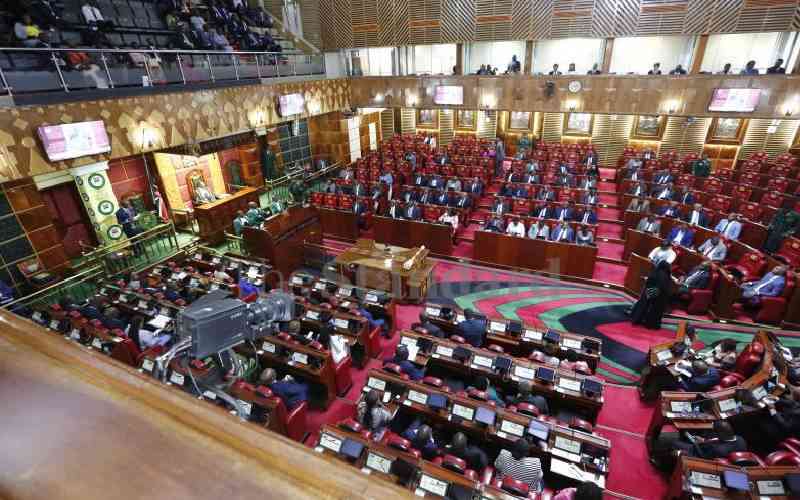
The National Council of Churches of Kenya (NCCK) has criticised MPs from the Mt Kenya region who confessed that they did not understand some of the provisions of the Finance Act, 2023.
NCCK Nyeri County chairman, the Rev Patrick Kimathi, has termed the Kenya Kwanza leaders 'failures' and urged Kenyans to gauge them wisely in the next elections.
"It is a major concern for us when the Members of Parliament in our areas come out to confess that they passed the Finance Act, 2023, without reading it," he said.
Kimathi spoke at ACK Mt Kenya West Hotel in Nyeri town during election of NCCK county officials.
"We elected them to review and pass laws, and this confession means they have failed in their main duty. This is something that we will encourage voters to consider in future elections," he said.
MPs who unanimously passed the Act are now on the receiving end following claims that the new law is on the verge of bringing the avocado sub-sector to its knees.
Some legislators, however, have claimed the Act does not intend to make the lives of Kenyans harder.
Molo MP Kuria Kimani, who is also the chairman of the National Assembly Finance and Planning Committee, accused the Kenya Revenue Authority (KRA) of misinterpreting some of the clauses.
"I want to tell KRA that I understand every clause of that legislation because I was the one who led my fellow MPs in endorsing it in Parliament. There is no proposal in the Finance Act meant to impose tax on our avocado farmers," Kuria said on Wednesday.
"There is only a requirement for farmers to register on e-TIMS (electronic Tax Invoice Management System). The aim is to net unscrupulous traders who have been importing avocado into the country and pretending to be local farmers to evade taxation," he added.
Gatanga MP Edward Muriu urged the government not to introduce agricultural taxation, arguing that it would expose farmers to suffering.

